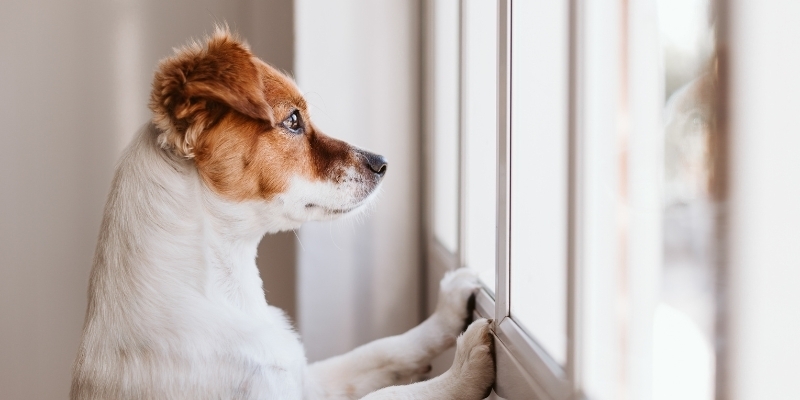|
Have you heard of separation anxiety in dogs? This is a behavioural condition where a dog experiences abnormal levels of distress when a person or animal to whom they are highly attached is absent. As well as being unpleasant for the dog in question, separation anxiety is understandably often upsetting for their owners too. These owners may be forced to change their lifestyle to accommodate their pet’s special behavioural needs, and often feel quite stressed when forced to leave their pet for necessary reasons. How can I tell if my dog has separation anxiety?
Unfortunately, these kinds of behaviours can result in the destruction of property and self-induced injuries to the pet. What should I do if I suspect separation anxiety in my pet? If we confirm a diagnosis of separation anxiety, we can then make a treatment plan for helping your pet. Depending on the severity of their symptoms, this plan may include:
The good news is that with the correct treatment (and some dedicated work on your part), most cases of separation anxiety can be cured or substantially improved! |
Our Blog
Mira Mar Vet, your local vet in Albany
Please, don’t go! Dogs with separation anxiety

